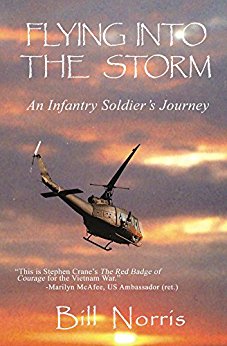MWSA Review
Drafted, Hal Arnold finds himself on an ocean liner converted to a troop ship en route to the war in the Pacific. Most of the men are much older than Hal, an intelligent, naïve, nineteen year old who longs to attend college, but is without resources to do so. This is Hal’s story, told in the first person, of his journey to maturity in a foreign land as a member of the Navy’s version of the Corps of Engineers — the Seabees. His adventures provide the reader with a first hand look at war, the last “great war,” as experienced by men behind the front lines.
No one in the battalion, including the commander, knows their destination. No one that is, except a sailor named Barry Fortune, an ordinary man — at least ordinary at first glance. Fortune is an entrepreneur, a wheeler-dealer, an opportunists, who unlike most of his breed, is a very successful one. Military units in the field during wartime are often short of needed items. The supply chain is slow and clogged, so the necessary — and sometimes not so necessary — items must be obtained by other means. The men who fill these needs are know by such names as “scrounger” or my favorite, “midnight requisition specialists.”
Fortune quickly became one such man; and as we read on we discover he is also an educated, wealthy, complex, adventurer, planner and doer. Recognizing Hal’s potential, Fortune takes him under his wing and becomes one of the men who will guide young Hal and shape his future. Over time the two become friends, forming a relationship that will last long after the war is over.
Next we meet the second man who will greatly influence young Hal: Roger Billiard, a man known to the Seabees as “Billiard Ball”, because of his bald head. The opposite of Fortune, Billiard Ball, a large, powerfully built man, is a cynical, professor who’s been drafted from his perch at Columbia University. Recognizing Hal’s intellect, Billiard Ball begins the young man’s education.
When Wars Were Won is an intriguing story that must be carefully read to be fully appreciated. WWII transforms America into its new role as the world’s first Super Power. A role America wasn’t ready for; but then again, how could it have been, for America was entering unexplored territory.
Hal Arnold struggles with his natural aversion to war and killing, yet realizes it’s unavoidable. At first the use of two atomic bombs that ended the war elates him. Later he muses, “To this day I regret my innocence. I regret that I celebrated our victory rather than mourned. The price our enemy paid gives me pain. Yet, it would be foolish to resent the bomb; its time had come, whether created by a defending, mission-bent America or a zealous, ambition-driven Axis. I was proud and thankful that the United States solved the nuclear riddle first, for I believed in America and it our good intentions. Yet I feared for all humanity. What is more dangerous than a well-meaning, self-righteous people bent on a mission?” Several more of Hal’s piercing observations are scattered throughout the book’s pages.
Hal’s experiences expose him to a wide range of human emotions and weakness: conflicts, petty jealousies, egos, Japanese atrocities, and the Navy cast system. In WWII’s Navy there were officers, enlisted, and Negroes: each treated differently and each with different restrictions and privileges.
Love interests? There are several, including a unique love triangle. Arnold also describes the basic human need for sex. The Philippines have been destroyed by the Japanese, and the Americans offer the only source of employment. Some women become servants, and others became “business women.” Soon temporary relationships flower between sailors and local women, women who refer to their man as their “husband” even though no marriage has taken place.
When Wars Were Won is a serious historical novel, or perhaps it is a memoir. Either way, along with providing an enlightening look at the rear areas of the Pacific campaign, the title subtly reminds the reader WWII was the last war won. But, that’s a discussion for another day.
MWSA Reviewer: Lee Boyland (2014)




















